#Michel Corneille the Younger
Text
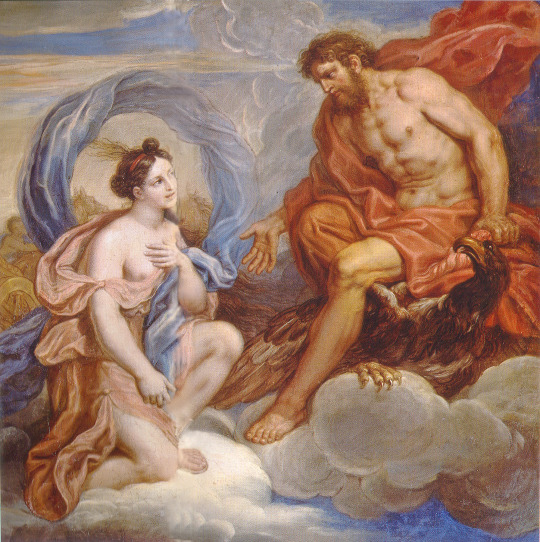
Iris and Jupiter, Michel Corneille the Younger, 1701
#art#art history#Michel Corneille the Younger#classical mythology#mythological painting#Jupiter#God Jupiter#Iris#Goddess Iris#Baroque#Baroque art#French Baroque#Ancien Regime#France#French art#18th century art#Versailles#Palace of Versailles#Grand Trianon#oil on canvas
215 notes
·
View notes
Text
Bérénice, and a new kind of tragic writing
Bérénice opened at the Hôtel de Bourgogne with Mlle Des Œillets's successor in the title role. Although this should have been greeted as a significant event, in fact Robinet, who was ill at the time, did not go to see it, although he was assured that the Troupe Royale displayed "grace, richness, pomp, and brilliance." Three weeks later he noted that on December 14 at the wedding festivities of the duc de Nevers the play had been performed "admirably" by the illustrious Floridor and the "charming Champmeslé, of whom I have already, often, spoken."
In contrast, Robinet was fulsome in his praise of the other "Bérénice", that is, Pierre Corneille's Tite et Bérénice, which opened at the Palais-Royal a week after Racine's version, and was declared by the gazetteer to be his "masterpiece." That Bérénice starred Mlle Molière as the queen of Judea, an interesting bit of casting, with Mlle Beauval- who had replaced Mlle Béjart in the troupe- as Domitie, a powerful female character who does not exist in Racine's version. The emperor was played by La Thorillière and his younger brother Domitian by the devastating young actor, Michel Baron. Unlike Racine's "extremely simple" play, which begins with the newly named emperor's decision to extricate himself from Bérénice and ends with his doing so, Corneille's comédie héroïque is a chassé-croisé of the four principal characters which ends in the marriage of Domitian and Domitie, while the two title characters put policy ahead of passion and continue to renounce each other.
Robinet definitely belonged to the party backing Corneille. On November 22, he begins his Lettre en vers with the news that Corneille's "nonpareil" poem would open the following Friday. A week later he has managed to see it, although too ill to see Racine's play, finds it "a marvel", and "divine", and pronounces the Troupe du roi every bit as good at the heroic as at the comic. On December 20 he gives Molière's troupe yet another boost: 52 lines of doggerel detailing the cast and insisting that the play has been fort suivi, "very well attended", and "praised".
Unfortunately, nothing has survived except Robinet's banalities to describe the performances of the two actresses who played Bérénice. The quarrel of the two Bérénices, however, suggests a way to think about what kinds of demands Racine was making and how those demands positioned Mlle Champmeslé to be a new kind of actress and star. Gérard Defaux, exploring Racine's Preface to Bérénice, notes that the playwright was formulating a new tragic system which would employ simplicity of action, grandeur of character, violence of passion, beauty of sentiment, and elegance and elevation of style. The product of this system is a play that has almost no incidents and that relies for its effect on psychological action, emotional mimesis, and verbal skill. Racine sets a difficult task for an actress.
Racine's Bérénice is essentially a victim, all reaction and emotion, discarded by the man she loves for reasons of state and glory that she fails to understand. The actress must move from ecstatic happiness […] to hopeless despair […] even though her medium is restricted. Although her physical presence is, of course, essential to the nature of performance, the words she speaks matter more. To the playwright they may be all that matter. The character has little or no influence on the course of events. The role contains almost no action, little rhetoric, and very little subtext. She conceals nothing, she reveals everything, and she has no history except a history of loving Titus.
Defaux makes the point that Racine is directly confronting Corneille with this play. As he wrote in the Preface, "It is not necessary to have blood and deaths in a tragedy; it is enough that the actors are heroic, that their passions are aroused, and that everything in it is characterized by that majestic sadness that produces all the pleasure of tragedy."
[..]
My point is not that either Racine or Corneille has written the better play; Racine's version is canonical, Corneille's is not. My point is rather that Racine has written a play- with a specific actress in mind- that makes an entirely new set of demands. Mlle Molière, an excellent actress, can take the stage in her accustomed way, identify her action, dominate her scenes, especially the final scene, and exit to well-deserved applause. Mlle Champmeslé must move from aria to duet, following the verbal score so carefully devised by Racine. Given the radical novelty of this kind of tragic writing, Racine may well have found it necessary to retrain some actors to perfom his plays as he wanted them performed.
Virginia Scott- Women on the Stage in Early Modern France: 1540-1750
#xvii#virginia scott#women on the stage in early modern france#la champmeslé#marie desmares#jean racine#play: bérénice#pierre corneille#play: tite et bérénice#armande béjart#racine vs corneille#reformulating tragedy#actresses
1 note
·
View note
Photo
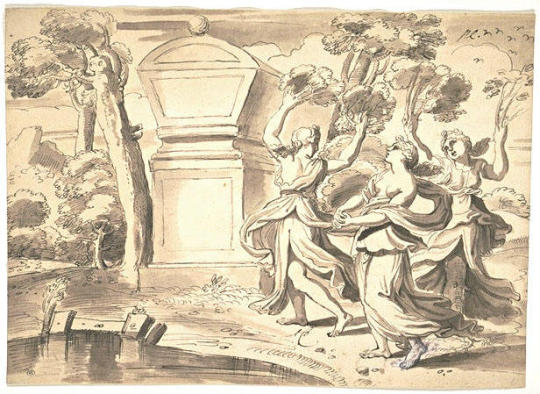
Michel Corneille the Younger - The Heliads turned into poplars, 2nd half 17th century, 1st quarter 18th century
#Michel Corneille the Younger#The Heliads turned into poplars#Heliades#Phaeton' sisters#mourning#crying#Phaethon#death#the tomb of Phaeton#Metamorphoses#Turned into tree
1 note
·
View note
Text
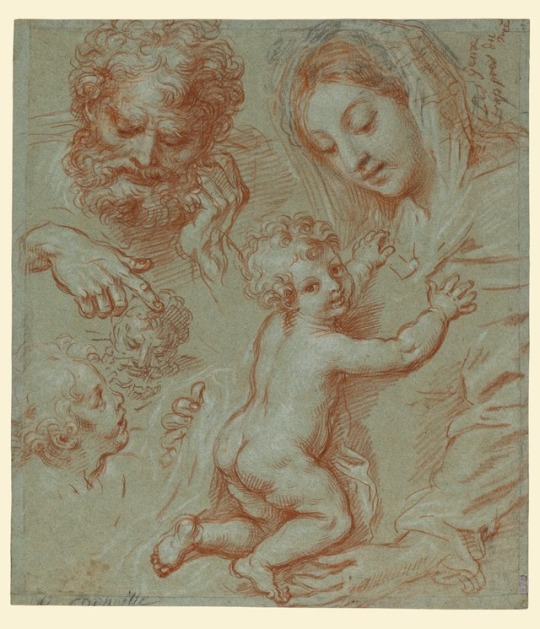
Michel Corneille the Younger, Studies of the Madonna and Child and of Heads, c. 1670-90
0 notes
Photo
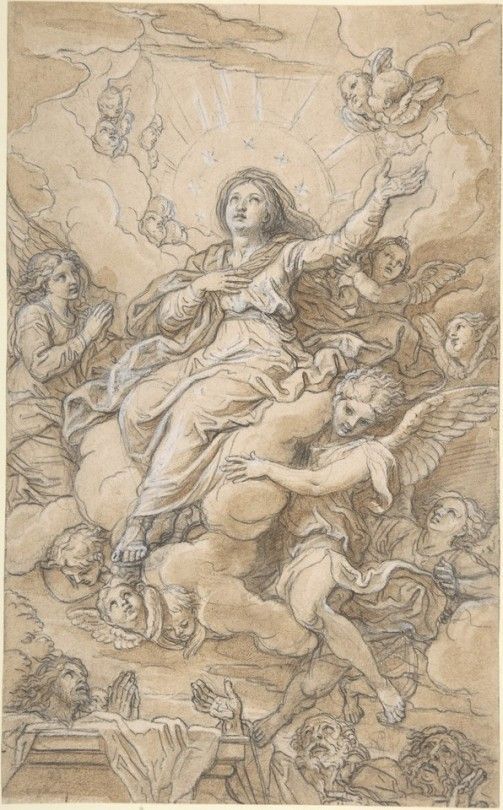
The Assumption of the Virgin by Michel Corneille the Younger
1 note
·
View note
Photo

The Assumption of the Virgin by Michel Corneille the Younger, Drawings and Prints
Medium: Pen and brown ink, brush and brown wash heightened with white over black chalk
Rogers Fund, 1973 Metropolitan Museum of Art, New York, NY
http://www.metmuseum.org/art/collection/search/336508
59 notes
·
View notes
Photo

The Humanist
❛ And when my prayers to God were met with indifference, I picked up a pen and I wrote my own deliverance. ❜
Full Name His Eminence Cardinal Armaud Rossignol
Alias “The Nightingale”
Age 56 (b. 1585)
Alliance The Crown/Catholic Church
Position Chief Minister to France
Negative Traits Manipulative, Ruthless, Suspicious
Positive Traits Ambitious, Brilliant, Passionate
Armaud was born the second son of three in a family of down on their luck aristocrats. He had the further misfortune of having been conceived while his father, a French soldier, was visiting the family homestead of Sarlat in southwestern France in the middle of the Wars of Religion. The death of his father during the Wars only served further to leave the already struggling family nearly completely bankrupt, with little more than their manor and a hereditary title of bishop of Sarlat to their name. Growing up missing and idolizing a lost father and raised to love both King and Country, Armaud had decided early on that he was to follow his father’s footsteps in becoming a soldier, while his elder brother, Jean-Michel, was to inherit the family manor and his much-loved younger brother Philippe was to inherit the diocese by becoming a monk.
However, such plans were tragically cut short when Jean-Michel, Armaud and Philippe had made a journey to Paris with their mother, who was eager to present her sons further to other members of nobility. Fate, however, was not kind to them when Armaud and Philippe – noting easily that their elder brother due to his years was the center of attention, decided to excuse themselves from court early to return to their inn. They took a shortcut through the outskirts of the Court of Miracles, where they were robbed at knifepoint by a small group of thieves. While Armaud compiled to the thieves’ demands, the more spirited Philippe resisted, and in front of his horrified older brother, he was stabbed to death, dying in Armaud’s arms.
A shattered and grieving Armaud, freshly driven with the knowledge of the transience of life, upon return to Sarlat gave up his dreams of becoming a soldier in order to secure the diocese by becoming a monk in Philippe’s place. He joined the Abbey of Saint-Sauveur of Sarlat to secure his family’s possessions. He did well there – likely much better than he ever would as a soldier – and became Bishop of Sarlat at the age of twenty one in 1606, for which he received special dispensation from Pope Paul V. Armaud entered royal politics first as almoner (head of the religious branch of the royal household) to Queen Marie-Claire Valois, and soon after to become Secretary of Foreign Affairs in 1609, and later a Cardinal. After the death of the king’s favorite minister, Georges Delafose, the Cardinal was appointed as Chief Minister to France in 1612. Although much beloved by King Louis Valois, he was viewed with great suspicion by the Queen Marie-Claire, who saw his quick rise through politics as a sign of undue ambition, especially as the King seemed to listen to the Cardinal more than to her. Distrusting the amount of influence Armaud had with the King, she schemed for a way to unseat him.
Armaud’s deliverance from Marie-Claire came from an unusual direction in the King’s infatuation with a young girl from the Court of Miracles, Angeline Baptiste. Despite his prejudices concerning those from that rat’s nest of a place, he saw this as an opportunity to rob the Queen of political power and secure his own, and so encouraged the match. He even pulled strings in multiple systems to have a surreptitious divorce settled between the King and the Queen and an equally surreptitious marriage occur between the King and Angeline. All of this was kept out of the knowledge of the vast majority of the Court with the assistance of then-Grand Master Jean Bourbon, due to the King’s request, who wanted to father an heir by Angeline before the controversial match was released to the people. However, Angeline, kept out of the public eye, died giving birth to the true heir, and the King died himself under mysterious circumstances soon before. Seeing the death of the King as a potential assassination, Armaud acted fast to secure his future potential ace. He had the true heir sent away secretly to the down-on-their-luck Dubois family, whose matriarch Alais, eager for standing, raised the boy among her own children.
Armaud still serves as Chief Minister to France, supporting to all who view him the bastard son of Marie-Claire, and playing keen games of power with her. He is known as the one of the most powerful men in France, and he has one goal and one goal alone: to forge France into the most powerful realm the world had ever seen, a goal that would have made his father proud. Believing himself in power to be the best way to serve France, he created his own private army in 1623 – the Red Guard – as an answer to the then Queen Regent Marie-Claire’s 1622 creation of the Musketeers. He put regional governors in different counties, having them report directly to him rather than local lords, and created a cloak and dagger spy network unlike the world had ever seen. In the meantime, he keeps the former Queen Regent pacified by discovering and executing anyone considered for treason and heavily keeping an eye on the Court of Miracles. France is set on the world stage to become a giant– and Armaud believes that he is the best man to lead it there - for the good of the country.
Connections
Danièle Lavigne (Non-player character) - One of Marie-Claire’s ladies-in-waiting who had been feeding him information about the then-Queen, Armaud found himself drawn to her despite his focused ambitions. The two shared several months of mutual, quiet, and surreptitious passion. Despite the brevity of their involvement, there was a part of him that was joyful as well as conflicted when Danièle had told him that she was pregnant - seeing it as perhaps a chance to claim a part of family that had been lost. For the first time since his brother’s death, Armaud was struck with a potential choice of slowing down ---with the payment of being present in the raising of his child. However, unfortunately, that choice was never his. In late 1613, Danièle left the Palace unexpectedly without notifying him of where she was going, likely in an attempt to save him from shame. Heartbroken, unable to try to locate her lest he reveal their secret, Armaud comforts himself that she might still wear the small golden band that he had given her around her finger. Although he has long thrown himself back head-first into politics, he does still wonders what became of their child - who they are, where they are, and if they know how much they are loved.
Marie-Claire — Former Queen Regent, Marie-Claire had a child by the late King Louis Valois - but while she and Louis, her ex-husband, were divorced - her son King Alexandre Valois is a bastard. Armaud and Marie are on opposing sides, with Marie both distrusting him for the rumored role he played in her ex-husband’s divorce of her and the Cardinal’s current and heavy influence upon her son. The seemly mild mannered Armaud sees her in return as a dangerous, power-grabbing radical trying to poison the king against him – precisely the thing that would ruin France. However, both at the moment – due to their firm entrenching - must pretend courtly affability as they scheme against the other so as not to give the game away.
Philippe Donadieu – The unknowing legitimate heir to the throne is the Cardinal’s ace up his sleeve. The former Queen Regent is a problem, and so he likes to keep Philippe in reserve, scheming that one day he will take the throne instead of Marie-Claire's son Alexandre. Philippe – named by Alais after Armaud’s brother in an attempt to endear herself to the Cardinal – was kept a close eye on growing up by his adopted mother (and Armaud’s spy) Alais Dubois. Putting aside his prejudices for the good of France, Cardinal himself played the role of kindly benefactor, visiting the boy occasionally as he grew under the pretense of seeing to the family Dubois, and subtly manipulating Philippe to the join the Church where the Cardinal would be able to keep an eye on him. Not long after Philippe became a full priest, Armaud manipulated to have his monk’s vows annulled and had the boy plucked from Compiègne Abbey (Abbaye Saint-Corneille de Compiègne), and transferred to Paris the current year 1641– still acting the part of kindly father figure. He hopes to continue to introduce the boy to court and to keep him close for when he is needed.
Simone Baptiste – The adopted daughter of late revolutionary François Baptiste, Simone is also a problem, albeit a very subtle and difficult to remove one. Armaud had had little idea that Angeline had snuck out letters to her brother François concerning her marriage to the King and her pregnancy. It was indirectly Armaud, hearing of the creating of François’ movement through his spy network, that had the Court of Miracles patriarch captured by the Musketeers and executed, although the letters themselves were never found. It would not do to give the game away so early. Although Armaud suspects that the La Bande Noire movement still exists and is growing, Simone is far more subtle than her father and is keeping her wild brother in line. At the moment, Armaud merely wishes to keep an eye on the young strategist as she does in return, recognizing in her a potential future ally were he to win her to his side.
This character is portrayed by COLIN FIRTH and is TAKEN
OOC Notes: Most of the relevant plot information needed by the player is here, but it is worth mentioning that at start of game the Cardinal is the only person who definitively knows that Philippe Dubois is the legitimate heir to France. Marie-Claire, Jean Bourbon, and those connected to La Bande Noire/Black Band movement are the only living people apart from the Cardinal at start of game aware that the former King was married to Angeline or that the former Queen and King were ever divorced at all. However, Marie-Claire, the Cardinal and those connected to La Bande Noire movement are the only characters aware that Angeline had a son. Please see Alexandre Valois, Fernand Baptiste and Marie-Claire’s bios and the plot for more information. The Cardinal suspects Marie-Claire of killing her ex-husband, the late King Louis Valois, but he has no concrete proof.
Note also that Herbert Dubois has history with the Cardinal not listed in The Cardinal’s connections. Please see Herbert Dubois’ bio for more information! He also has important connections with Hasekura Valentin, Pierre Chauveau, and Ameline de Granada Venegas, and former Captain of the Red Guard, Bertrand Rouzet.
The personal home of the Cardinal, the lavish Palais-Cardinal in the center of Paris, was completed in 1639. Cardinal Rossignol has swag, but the majority of his time is spent at the Royal Court in the Palace of Tuileries.
Please see our Influence of the Church section for important historical background information for this character.
1 note
·
View note
Photo

Michel Corneille the Younger (1642-1708)
Study of Heads
156 notes
·
View notes
Photo
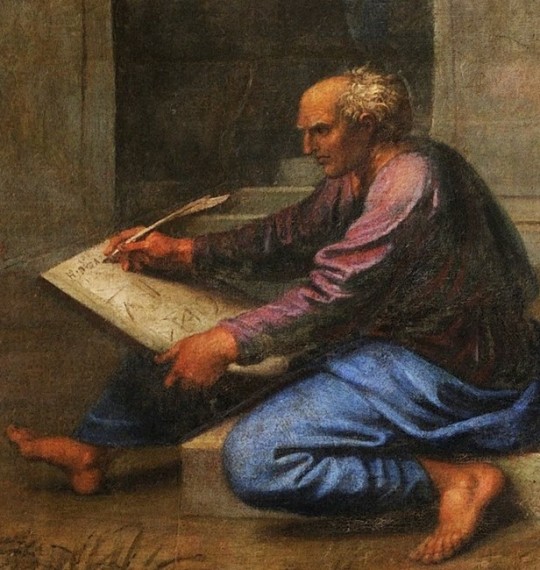
Click on the image to see the detail in a zoomable context.
Detail from Aspasia surrounded by Greek philosophers, Michel Corneille the Younger, 1670s
27 notes
·
View notes
Photo

Michel Corneille the Younger - Aspasia surrounded by Greek Philosophers. 1670
20 notes
·
View notes
Photo
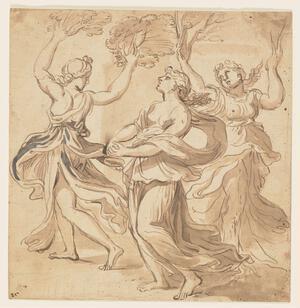
Michel Corneille the Younger - The Heliads turned into poplars, 2nd half 17th century, 1st quarter 18th century.
#Michel Corneille the Younger#Heliades#Phaeton' sisters#mourning#crying#Phaethon#death#the tomb of Phaeton#The Heliads turned into poplars#Metamorphoses#Turned into tree
0 notes